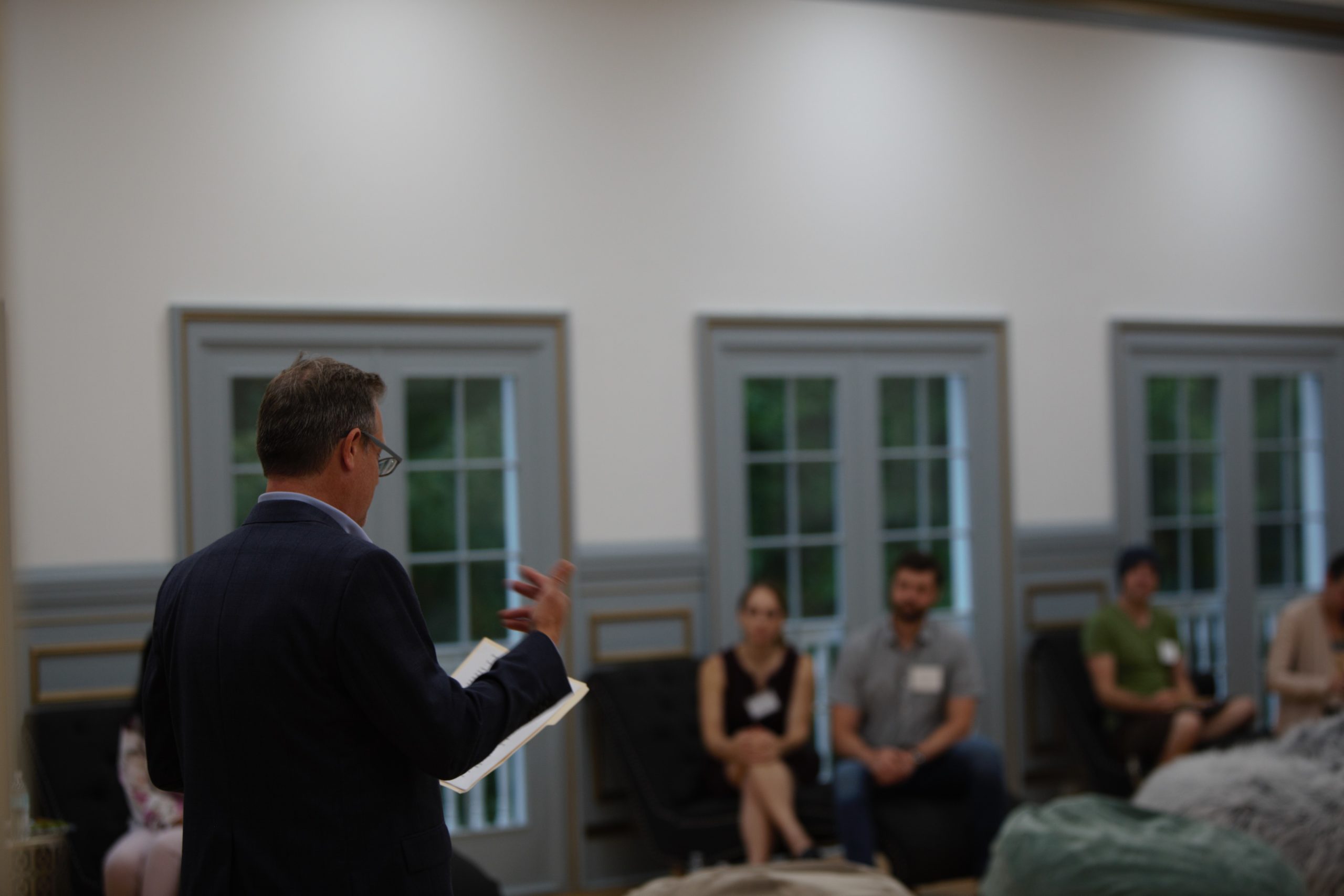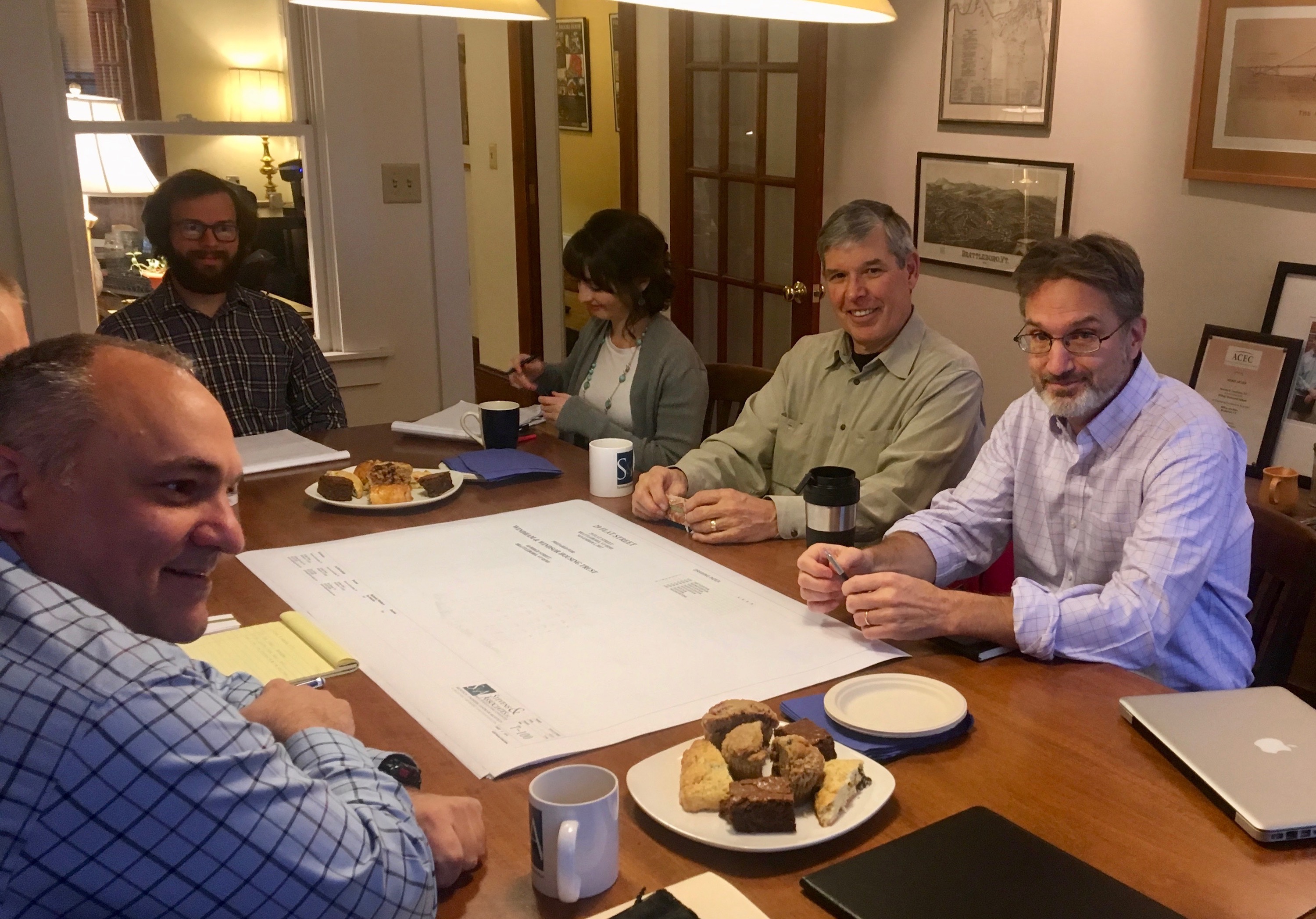Guest Blog: This is Good For All of Us
A review of the New to Vermont Lunch Series: New American to New Vermonter session at the Southern Vermont Economy Summit
Interview with Mary Gannon, Ed.D., Strategies for Creating Just and Equitable Organizations & Communities
The Southern Vermont Economy Summit sessions provided opportunities for learning and conversation across a wide range of topics. To keep the conversation going, we’ve invited guest bloggers to provide insights from their attendance at the summit.
Sarah Lang, who runs BDCC’s USDA RCDI funded Southern Vermont Economy Project, spoke with Mary Gannon, Ed.D., Strategies for Creating Just and Equitable Organizations & Communities, about one of the three sessions that made up the Summit’s New to Vermont Lunch Series: New American to New Vermonter. We wanted to get her perspective on the session and what communities can take away from conversations such as these.
SL: What were you most surprised about during the lunch session you attended?
MG: Yes, happy to share that. Well, a couple things in terms of surprise, taking on two meanings, sort of like, “Oh, gosh, I can’t believe this is happening” versus pleasantly surprised. I’ll go with the latter first. I used to teach at SIT and I had a lot of exposure to so many international students up there, and stories from asylum seekers. At different points, I’ve been very connected to Dora through our kids, and all kinds of mutual aid. So I’ve heard a lot of those stories before. I’ve had the honor of really just sitting with people and having them share. So one of the things that just surprised me, like, that’s just amazing to me, is their willingness to share those stories. Particularly to a predominantly white US based group.
I would imagine that there has to be a little bit of re-traumatizing that happens when they are resharing their experiences, but I didn’t notice that when I was listening to them, or watching them. I think when people tell their stories, there’s a therapeutic component to that. One of the reasons why I was drawn to that session was that it is a great reminder for me, but also, I just really want to witness and support them.
I also appreciate how you can see that with the right supports in place, they can really be successful. In a society and in a community that still doesn’t always want them there.
SL: If you could sum up the session in one sentence, what would that be?
MG: I don’t know if I can do it in one sentence but- very powerful and to keep considering what the intention is for this kind of panel and conversation so there can be more contextualized action.
SL: Can you explain a bit more what you mean?
MG: I think those kinds of panels and kind of speak-outs have some value. And they can also be problematic if they’re not contextualized. There has to be a lot of thought given to why are we using this format – Why are we presenting this particular panel? What’s the purpose? What’s the intention? And so, you know, I think it’s always tricky when you have people telling stories of trauma and people who don’t have that experience are listening. And then what does that mean, for the folks who just share the stories, but also for those of us who are listening? And what’s our takeaway from that?
We have this potential opportunity with folks coming to Brattleboro. What a great opportunity to say, knowing what we’ve heard, hearing what we’ve heard, what are some things we can take away as we move forward into this next opportunity? How this information, how the experience of understanding people’s experiences would be used in a greater context. At the end, these folks who were on the panel also got to say, here’s what worked and here’s what didn’t work and gave us some of that feedback. That was very helpful, I think, for all of us.
SL: Based on what the panelists said, what can communities and individuals do to help make Southern Vermont a more welcoming place?
MG: I was doing racial equity training in Rutland with the Board of Aldermen when Chris Louras was the Mayor. I was doing police training and Aldermen training with Curtiss Reed and we were having a lot of community conversations. We spent countless hours with Mayor Louras around what it meant to bring Syrians into the community. There was an incredible outpouring of agency support, community and organizational support, which I feel it’s just so unfortunate the Louras lost his mayoral seat, because that community, despite all of the white supremacy culture there, was really positioned to really welcome and include those folks into the community. There are lessons to be learned from Rutland’s experience.
I do think it’s also education within different pockets of the community, like in the school district – are there community conversations that can be had with law enforcement, like really thinking of the social institutions in our community, all those stakeholder groups, understanding the value of inviting people to come and live in our community, in this case, asylum seekers, immigrants, New Americans. If the support comes from the leadership, like the local police chief, the town manager, the superintendent, that can be a great opportunity. I think people need to figure out how to get involved in the selection process of new leaders and support those that have the skill sets and the leadership to bring that work to the forefront.
Regardless of whether we’re bringing in domestic folks of color, people who don’t live in Vermont, people of color are coming into the community, whether it’s New Americans or asylum seekers, we have a lot of work to do around educating people. The messaging needs to be, and the truth is, that this is good for all of us, everyone benefits from these kinds of efforts, from a multiracial and multicultural community. I think the narrative out there is that we’re only doing this for BIPOC individuals, only doing this for the New American community. Everybody benefits from a community where everybody gets what they need, right? It’s the people with privilege who are somehow concerned that they’re going to miss out or lose out on something because they don’t understand the value for everyone.
Thank you to Mary for giving her time and thoughts for this interview. To view the full summit session, visit https://www.sovermontzone.com/recordings-and-materials
For over three decades, Mary Gannon has provided expert training and education to a plethora of students, staff, faculty, and employees. Dr. Gannon is an active participant in many community coalitions and special interest groups, and is a founding member of the Community Equity Collaborative in Brattleboro, Vermont.
Photo by Tim Mossholder on Unsplash



